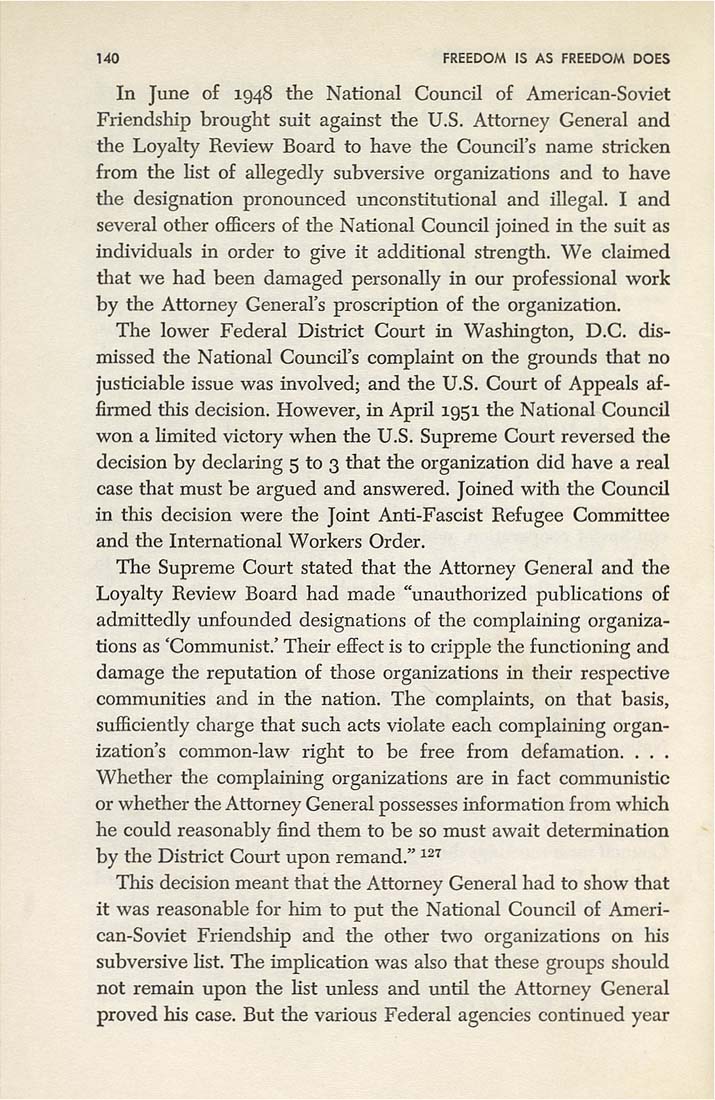Lamont, Corliss, Freedom is as freedom does
(New York : Horizon Press, 1956.)
|
||
|
|
|
|
| Page 140 |

140 FREEDOM IS AS FREEDOM DOES In June of 1948 the National Councfl of American-Soviet Friendship brought suit against the U.S. Attorney General and the Loyalty Review Board to have the Council's name stiicken from the hst of allegedly subversive organizations and to have the designation pronounced unconstitutional and illegal. I and several other officers of the National Council joined in the suit as individuals in order to give it additional stiength. We claimed that we had been damaged personally in our professional work by the Attorney General's proscription of the organization. The lower Federal Distiict Court in Washington, D.C. dis¬ missed the National Council's complaint on the grounds that no justiciable issue was involved; and the U.S. Court of Appeals af¬ firmed this decision. However, in Aprfl 1951 the National Councfl won a Hmited victory when the U.S. Supreme Court reversed the decision by declaring 5 to 3 that the organization did have a real case that must be argued and answered. Joined with the Councfl in this decision were the Joint Anti-Fascist Refugee Committee and the International Workers Order. The Supreme Court stated that the Attorney General and the Loyalty Review Board had made "unauthorized publications of admittedly unfounded designations of the complaining organiza¬ tions as 'Communist.' Their effect is to cripple the functioning and damage the reputation of those organizations in their respective communities and in the nation. The complaints, on that basis, sufficiently charge that such acts violate each complaining organ¬ ization's common-law right to be free from defamation. . . . Whether the complaining organizations are in fact communistic or whether the Attorney General possesses information from which he could reasonably find them to be so must await determination by the Distiict Court upon remand." ^^'' This decision meant that the Attorney General had to show that it was reasonable for him to put the National Council of Ameri¬ can-Soviet Friendship and the other two organizations on his subversive list. The implication was also that these groups should not remain upon the Hst unless and until the Attorney General proved his case. But the various Federal agencies continued year |
| Page 140 |







